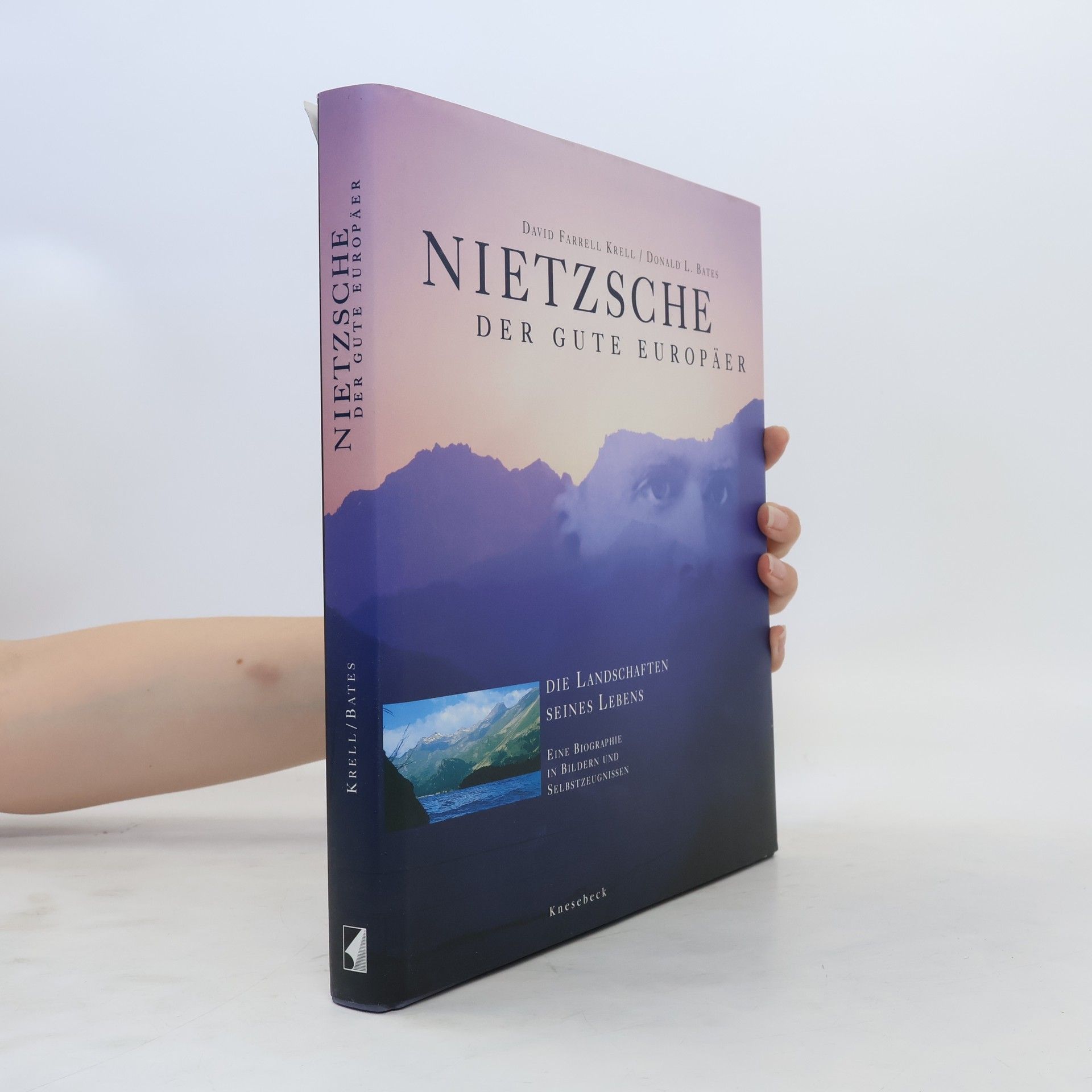David Farrell Krell Bücher
David Farrell Krell ist emeritierter Philosophieprofessor, dessen Werk sich mit den tiefgreifenden Verbindungen zwischen Sprache, Sein und Literatur auseinandersetzt. Seine Forschung untersucht häufig existenzielle Themen durch sorgfältige kritische Analyse wegweisender philosophischer und literarischer Texte. Krells Ansatz zeichnet sich durch rigoroses Denken und die Fähigkeit aus, verborgene Bedeutungsebenen in den Werken großer Denker aufzudecken. Seine einflussreichen Übersetzungen und redaktionellen Beiträge haben das breitere Verständnis und die Interpretation komplexer philosophischer Konzepte maßgeblich gefördert.






Exploring the complex interplay between cruelty and tenderness, this book delves into philosophical and psychological insights that challenge readers to reflect on human behavior. It examines the motivations behind acts of cruelty and the capacity for tenderness, providing a thought-provoking analysis of these contrasting emotions and their impact on relationships and society. Through a blend of theory and reflection, it invites an in-depth understanding of the human condition.
A Black Forest Walden
Conversations with Henry David Thoreau and Marlonbrando
- 296 Seiten
- 11 Lesestunden
The narrative juxtaposes contemporary life in the German Black Forest with the reflections of Thoreau at Walden Pond, exploring themes of nature, simplicity, and self-reliance. It highlights the contrasts and similarities between modern existence and Thoreau's philosophical insights, inviting readers to contemplate the impact of environment on lifestyle and values. Through vivid descriptions and thoughtful analysis, the book encourages a deeper understanding of how place shapes human experience.
The book explores Hölderlin's transformative journeys to Bordeaux in 1801-02, highlighting their significance in shaping his poetic vision and personal development. It delves into the experiences and influences he encountered during this period, marking crucial turning points in his life and work. Through detailed analysis, the narrative reveals how these travels impacted his creativity and philosophical outlook, offering insights into the complexities of the poet's journey.
The book offers an intimate exploration of the lives and philosophies of Martin Heidegger, Hannah Arendt, and Jacques Derrida through the lens of David Krell's personal encounters and unpublished correspondence. It highlights the intersection of their ideas with their personal experiences, providing a unique perspective on these influential thinkers as individuals rather than mere biographical subjects. Krell's warm recollections and insights create a rich tapestry that invites readers to engage with the philosophers in a more personal and relatable manner.
Explores health, illness, and creativity in the life and thought of Friedrich Nietzsche. Drawing on a varied literature of philosophical reflections on health, and analyzing Nietzsche's confrontation with traditional values, this title deals with the legacy of Platonism and Western metaphysics that is at the core of Nietzsche's thought.